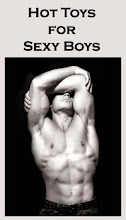It's been a few days since the "no indictment"
decision was announced. I like to reflect on things before I comment, but I
think that I'm ready to comment.
First, I don't understand why anyone was surprised by the
grand jury decision. The writing was on the wall from day 1. I never had real
hope that it would end any other way and when the governor called in the
National Guard and issued a State of Emergency, I became 99.9% sure that I knew
the outcome. Now, let me stop here and
explain for those of you who are rationally challenged that this does not mean
that I think Darren Wilson is guilty or that he should fry for what he did.
This means that I think there was enough evidence to have a trial and that McCulloch
tanked the grand jury (I base this on what prosecutors have said about the way McCulloch
handled the grand jury). My assumption is that the trial would have ended with
a "not guilty" verdict because I can't see McCulloch trying very hard
to get a conviction. That said, I guess in the big picture, McCulloch saved us
all a lot of time and energy.
I was not surprised by the rioting and looting that occurred
after the verdict, but I was upset with the way that it was handled. I try not
to be a conspiracy theorist, but someone has to ask the following questions: If
you are afraid that people will react violently, why do you make the
announcement at night? If you called a State of Emergency the week before and
you have the National Guard troops at your disposal, why don't you station them
in front of all the stores on the main strip? Why leave the mostly minority
owned stores unprotected, but have police stationed in front of the mostly
white owned stores? I'm not going to bother answering those questions, but I do
want you to think about it.
Now for the media. I can't help but wonder why the media
focused so heavily on the rioting and looting and virtually ignored the
peaceful protestors and the residents of Ferguson who tried to stop the
looting. I'm sure a few residents from Ferguson engaged in looting, but the
consensus seems to be that the majority of the looters were anarchist who came
to seize the opportunity to loot. I saw lots of the violence on television, but
very little of the kindness. I had to go online to see people trying to take a
stand against the looters. I support peaceful protests, but I don't support
rioting or looting and while we're on the topic, I don't support walking on a
highway and stopping traffic. I'm fine with protestors shutting down certain
streets because people can always take an alternate route, but shutting down
the highway, while dramatic and attention grabbing, is also annoying as hell to
many of those stuck in traffic.
Now for the online trolls. I saw one person make a joke that
if the police wanted to scatter the protestors, all they had to do was drop job
applications. Clearly, the person has not listened to the residents of
Ferguson. One of their top complaints is that the jobs have dried up. The
people want to work, but there aren't enough jobs to go around. If the
government dropped legitimate job applications for open positions, the people
would probably knock each other down trying to get their hands on the
applications.
The unrest in Ferguson has been bigger than Mike Brown since
the beginning. The residents of Ferguson have aired their grievances on multiple
occasions, but it appears that most people have not been listening. The Mike
Brown incident was the final straw in a long string of perceived injustices.
I've heard the residents complain that there are few job opportunities in their
area. I've heard them complain about subpar schools. I've heard them complain
about over policing in their area and tell stories about being mistreated by
the police, but not once have I heard them say that they want to be unemployed
and living off the government. I hate when people try to perpetuate their
biases on a group of people. Most black people
are not lazy. Of course there are exceptions, but there are lazy people
in every race. I've heard since I was a child that "black people are the
last hired and first fired." Job statistics seem to support that. Before
you complain about the number of black people on welfare, try looking at the
unemployment rate for black people and remember that the unemployment rate only
counts those who are actively seeking employment.
Now back to the Mike Brown shooting. Pretty much everyone
agrees that some sort of altercation happened at the vehicle. I for one am
impressed that a "five year old" was able to win a wrestling match
with "Hulk Hogan," but hey, stranger things have happened (yes,
that's a little bit of shade). I wasn't there. I don't know what happened, but
I do know that the aftermath wasn't handled properly. The Medical Examiner
didn't take any photos at the scene because the camera didn't have batteries.
Are you kidding me? Even if the camera didn't have batteries, why didn't anyone
go buy some batteries? Mike Brown's body laid in the street for four and a half
hours. What's another few minutes if it means that there is more evidence? I've
seen reports that Darren Wilson was allowed to keep his gun and to drive himself
back to the precinct, I haven't been able to confirm that, but if it is true,
then what the hell? Is a police shooting that normal, that it's literally
business as usual afterwards? The surveillance video of Mike Brown robbing a
store was released at a press conference that was supposed to be about naming
the officer. The prosecutor sounded like a defense attorney when he announced
the grand jury decision. McCulloch discredited the witnesses (way to make
people want to come forward), condemned the media (yes they deserved it, but
that was neither the time nor the place) then shaded the victim (because
nothing says you were a worthless thug like the prosecutor reminding everyone
that you were no angel). A simple reading of the decision would have sufficed.
McCulloch's speech left a bitter taste in my mouth, but one
thing that he said stuck out to me. He made a point of mentioning that white
people have also been killed by police. Few people latched on to that
statement, but it was the one that caught my attention. For starters, black
males are killed by police at a much higher rate, but that is neither here nor
there for the argument I am about to make. How can you defend the shooting of a
black man by reminding people that police shoot and kill white men too? Why did
no one care about that comment? To me, it says everything that is wrong with
our system. We've created police forces that are trigger happy. Unless someone
is shooting at you, your gun should be one of the last things that you reach
for, yet here, in America, it is often the first thing. What's the point of
creating mace and tasers and letting police have batons if their hands are
going to go for the gun first? Why bother with all the extras?
By Wilson's own admission, he thought, "Do I have the
legal right to shoot?" He thought he did and the grand jury agreed. That
isn't his fault, that's the system's fault. Let's say that everything happened
exactly the way that Wilson said it did. I think if Darren Wilson would have
shot Mike Brown multiple times at the vehicle, none of this extra stuff would
have happened. More people would say, well, Brown shouldn't have touched the
gun. What did he think was going to happen? The officer was trapped in the
car, of course the officer shot him. The argument stems from the fact that Mike
Brown was running away but Darren Wilson got out of his vehicle and started
firing at him. It has been found that Darren Wilson was well within his rights
as a policeman, so any anger directed towards Wilson is misdirected. He didn't
break any laws. If you don't approve of his actions then you need to try to
change the laws. Speaking of which, I think that the Mike Brown Law should be
passed because cameras eliminate the questions. If Darren Wilson had on a body
camera, no one would wonder about what happened, because everyone
would know for sure.




